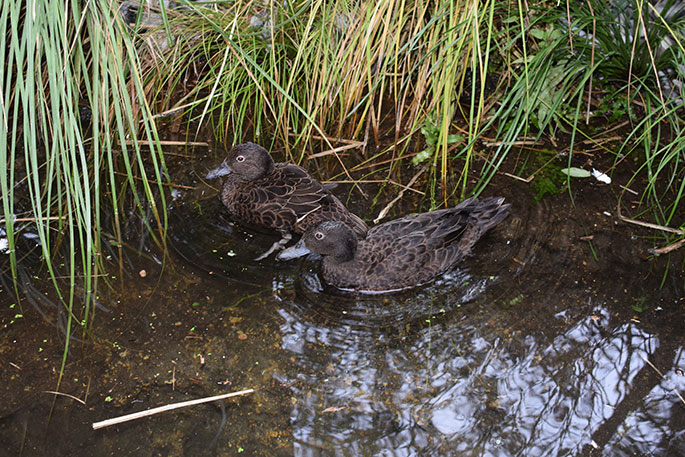Rainbow Springs, a Ngāi Tahu Tourism company, is thrilled to welcome two very rare pāteke (brown teal) ducks to the nature park in Rotorua today.
This is a new species for Rainbow Springs who hopes they will settle and breed at the park, and aid the recovery of the species.
Pāteke are native to New Zealand and are a taonga species that hold a special cultural significance to Ngāi Tahu.
Lisa Tumahai, kaiwhakahaere of Te Rūnanga o Ngāi Tahu says the protection of taonga species was an important part of Te Kerēme, the Ngāi Tahu claim.
'Caring for the pāteke at Rainbow Springs will help protect our taonga species and that should be celebrated,” says Lisa.
'Across all our businesses we have a strong conservation focus as we take our kaitiaki role very seriously.”
A full list of taonga species set out in the Ngāi Tahu Claims Settlement Act 1998 can be found here.
Rainbow Springs welcomed the new breeding pair on Tuesday afternoon, from the Department of Conservation National Captive Breeding programme.
The pair were flown up from Peacock Springs in Canterbury by Air New Zealand with the hope that they will settle into the nature park and eventually breed.
Air New Zealand is a national partner with the Department of Conservation and sponsors the transports of New Zealand's most endangered species as part of active recovery programmes.
David Hennigan, Business Manager at Rainbow Springs says it's an opportunity to play a role in helping the native species survive.
'We're thrilled to be in a position to offer the pair a new home.
'Pāteke aren't known to most New Zealanders, with kiwi and other better known species often taking the limelight, so it's great that we'll be introducing these quirky little guys to our visitors.”
Kevin Evans from DOC's Pāteke Captive Breeding Programme says before humans arrived in New Zealand there were millions of pāteke found throughout the country.
'In the past 20 years numbers have declined to as low as 700 in the wild. Now, thanks to recovery efforts such as these there are around 2500.
'Predators such as stoats, cats and ferrets are their key cause of decline.”
Jeff Milham, DOC's Tauranga/Rotorua Operations Manager says all New Zealanders can do their part to help pāteke and other endangered species.
'Put a bell on your cat's collar and feed it well, make sure you only take dogs to areas that allow them, set predator traps on your land and avoid leaving old fishing lines on beaches or in the sea.
'If everyone did these simple things we would see a dramatic increase in numbers of our endangered species.”
The birds will be housed in a large aviary that they will share with tui and kererū.
DOC's Pāteke Captive Breeding Programme has successfully released more than two thousand pāteke into the wild since 2003.



0 comments
Leave a Comment
You must be logged in to make a comment.